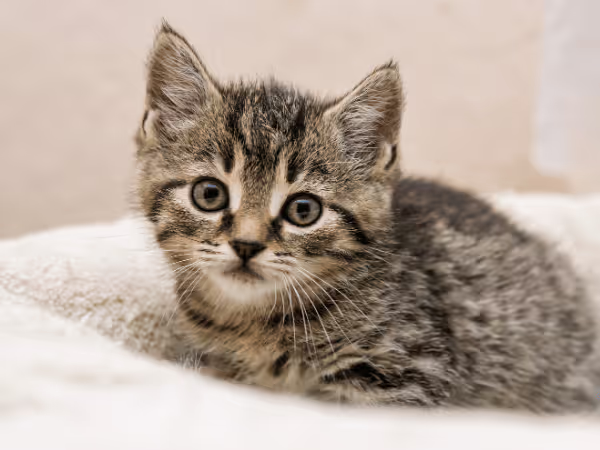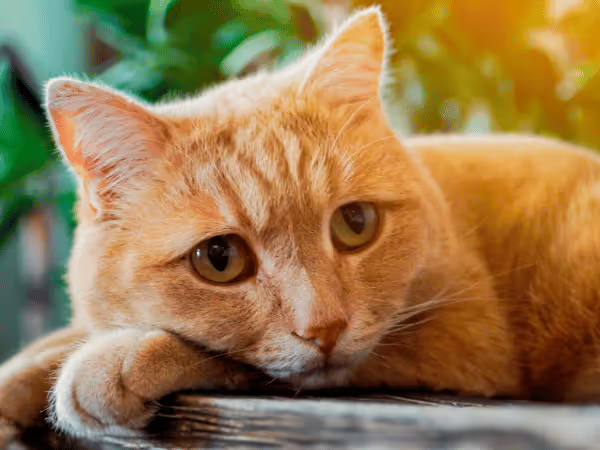Your cat’s poop can reveal important insights about their overall health, especially changes in consistency, color, or frequency. If your cat has diarrhea, it may be caused by common issues such as dietary intolerance, parasites, stress, infections, or inflammatory conditions.
In this Sploot Vets guide, we talk about what causes diarrhea in cats and how each of these impacts your furry friend’s health!
1. Sudden Changes in Cat Food
Cats have a very particular digestive system that thrives on consistency. A sudden switch in a cat’s diet can disrupt the gut’s microbiota, leading to gastrointestinal upset. Moreover, abrupt changes in cat food can trigger dietary intolerances or sensitivities, especially when a cat is exposed to new proteins or additives.
This is why changing cat food too suddenly can cause vomiting and diarrhea in cats. Ideally, any cat food transitions should be done gradually by mixing increasing amounts of the new food with the old.
To help reduce the chances of gastrointestinal issues when switching to a new cat food, Sploot veterinarian Dr. Sylvia Berns recommends the following guidelines:
- First 1 - 2 weeks = 90% old food + 10% new cat food
- Next 1 - 2 weeks = 80% old food + 20% new cat food
- Next 1 - 2 weeks = 70% old food + 30% new cat food
- So on and so forth until the new cat food is completely weaned in.

2. Food Intolerances or Allergies in Cats
Cat food allergies and dietary intolerances are fairly common in cats. In most cases, cats are allergic to certain proteins, including those found in chicken, beef, dairy, and fish. However, cats can also have allergic reactions to plant-derived ingredients in rare cases.
Both food allergies and dietary intolerance can cause vomiting in cats and chronic diarrhea in cats. Allergic reactions can also lead to itchiness, which can cause hair loss or skin infections due to excessive scratching or overgrooming.
3. Dietary Indiscretion
Dietary indiscretion in cats refers to instances wherein a cat eats something inappropriate or even toxic. Curious cats may nibble on toxic plants (such as lilies or pothos), ingest table scraps, garbage, string, or even spoiled food. This can irritate the stomach and intestines, causing symptoms such as abdominal pain, vomiting, retching, and acute diarrhea in cats.
Other common household items, such as onions, garlic, chocolate, and certain substances (e.g., gardening and winter chemicals), are also poisonous to cats, potentially causing acute diarrhea and other severe symptoms that require urgent veterinary attention.

4. Intestinal Parasites in Cats
Intestinal parasites are a frequent cause of diarrhea in cats, especially in kittens, cats adopted from a shelter, and outdoor cats. The most common culprits include Giardia and intestinal worms in cats (e.g., roundworms, hookworms, and tapeworms).
These parasites live in the cat’s intestines, potentially causing vomiting, diarrhea, lethargy, and other symptoms depending on the parasite present.
5. Infectious, Inflammatory, & Stress Colitis in Cats
Colitis in cats refers to inflammation of the colon or the large intestine. In cats, colitis is characterized by frequent, small-volume diarrhea—often with mucus or blood. Colitis in cats can be caused by the following:
- Stress colitis in cats – Colitis triggered by environmental changes or anxiety, often causing sudden onset of mucus- or blood-tinged diarrhea.
- Infectious colitis in cats – Caused by bacterial, viral, or parasitic infections that inflame the colon and lead to diarrhea, sometimes with fever or lethargy.
- Inflammatory colitis in cats – A chronic immune-mediated condition, often part of inflammatory bowel disease (IBD) in cats, resulting in recurrent colonic inflammation and soft or bloody stools.
6. Other Medical Conditions
Aside from feline colitis, other medical conditions can also produce diarrhea in cats. These include the following:
- Inflammatory bowel disease (IBD) in cats – This can cause colitis and can also impact other parts of the intestines. Even if the colon is not affected by IBD in cats, this condition can still lead to chronic diarrhea in cats, as well as vomiting, weight loss, and changes in appetite.
- Hyperthyroidism – A hormonal disorder common in adult and senior cats, characterized by an overactive thyroid gland. Hyperthyroidism in cats impacts metabolism and intestinal motility, potentially causing diarrhea in cats. Other symptoms include weight loss (even with a good appetite), hyperactivity, and increased thirst.
7. Age-Related Diarrhea in Cats
Although diarrhea in cats can occur at any age, kittens and senior cats are more susceptible to this symptom for different reasons:
a. Senior Cat Diarrhea
Senior cat diarrhea is typically caused by chronic health conditions such as inflammatory bowel disease (IBD), hyperthyroidism, chronic kidney disease, and certain types of cancer, such as lymphoma.
Aging cats may also experience reduced digestive enzyme production or become sensitive to ingredients they previously tolerated. Additionally, long-term medications that are commonly prescribed for senior cats (e.g., NSAIDs, steroids) can disrupt gut health, leading to diarrhea.
b. Diarrhea in Kittens
Kittens have developing immune systems, which makes them more prone to intestinal parasites and infectious agents that cause diarrhea. In addition, viral infections like feline panleukopenia (feline distemper) can cause severe, life-threatening diarrhea in unvaccinated kittens. This highlights the importance of timely feline vaccinations and preventatives.
In addition, kittens may also eat inappropriate items due to curiosity or may need to change diets as they grow up; both of which can lead to diarrhea in kittens.

When to Seek Veterinary Care for Diarrhea in Cats
If your pet experiences severe or persistent diarrhea (lasting more than 12 hours), we recommend consulting a veterinarian for appropriate treatment. Diarrhea can be a symptom of various health issues, and early diagnosis and intervention are crucial for your dog’s health.
Sploot Vets: Your All-in-One Vet for Cats
Is your cat experiencing diarrhea or other related symptoms? Sploot Vets provides all-in-one veterinary care you can count on. Our veterinary clinics in Colorado Springs, Denver, and Chicago offer primary care, urgent care, and emergency veterinary services all under one roof.
We also operate for extended hours, 365 days a year, so we can be here for you when it matters most. Lastly, our Fear Free vet care approach prioritizes your cat’s well-being every step of the way.
For urgent care concerns (such as persistent diarrhea in cats), call our team at (720)770-8656
If you’d like to schedule a regular check-up, you can easily book an appointment online or through the Sploot Vets app.






